2014 was a great year for Christian readers, and today I want to share some of my top picks from the year that is swiftly drawing to a close. Let me offer a few caveats: First, these are almost certainly not the best books of 2014 in any objective sense; rather, they are my favorites, the ones that have remained in my mind and impacted my life since I read them. Second, they are in no particular order. And finally, at the request of several readers I am posting this list before the end of the year because some people would like to refer to it as they do their Christmas shopping. Enjoy!
 Look and Live: Behold the Soul-Thrilling, Sin-Destroying Glory of Christ by Matt Papa. This was one of the last books I read this year, but undoubtedly one of the best. Papa, a musician and worship leader, dives deep into Christian history, into the best of contemporary writers, and, of course, into the Bible to draw the reader’s attention to the beauty and power of the gospel. His goal for the book is “to help you overcome idolatry and certain sadness by pointing you to the all-satisfying, sin-destroying glory of Jesus.” He succeeds admirably. (Buy it at Amazon | Read my review)
Look and Live: Behold the Soul-Thrilling, Sin-Destroying Glory of Christ by Matt Papa. This was one of the last books I read this year, but undoubtedly one of the best. Papa, a musician and worship leader, dives deep into Christian history, into the best of contemporary writers, and, of course, into the Bible to draw the reader’s attention to the beauty and power of the gospel. His goal for the book is “to help you overcome idolatry and certain sadness by pointing you to the all-satisfying, sin-destroying glory of Jesus.” He succeeds admirably. (Buy it at Amazon | Read my review)
 An Infinite Journey: Growing Toward Christlikeness by Andrew Davis. This book was released at the very end of 2013, but because it was not in wide distribution until early this year, I have chosen to include it as a 2014 title. And it is a very good one! It is a book about growing toward spiritual maturity, but it is more than that; it is also a map for the journey. This makes it something like a systematic theology of spiritual growth and maturity, and one that will benefit any Christian. (Buy it at Amazon | Read my review)
An Infinite Journey: Growing Toward Christlikeness by Andrew Davis. This book was released at the very end of 2013, but because it was not in wide distribution until early this year, I have chosen to include it as a 2014 title. And it is a very good one! It is a book about growing toward spiritual maturity, but it is more than that; it is also a map for the journey. This makes it something like a systematic theology of spiritual growth and maturity, and one that will benefit any Christian. (Buy it at Amazon | Read my review)
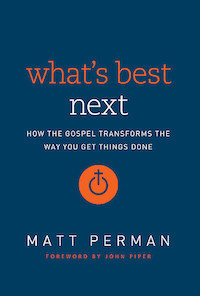 What’s Best Next: How the Gospel Transforms the Way You Get Things Done by Matt Perman. This is a book about getting things done, and one that looks at the subject from a distinctly Christian perspective. Perman takes the work of men like Peter Drucker, David Allen, Stephen Covey, Tim Ferris and many others, and examines them through the lens of Scripture. What is good he accepts, what is bad he rejects, and what is somewhere in-between he adapts. This makes it a book for anyone who needs to get better at getting things done, but especially for those involved in knowledge work and the realm of ideas. (Buy it at Amazon or Westminster Books | Read my review)
What’s Best Next: How the Gospel Transforms the Way You Get Things Done by Matt Perman. This is a book about getting things done, and one that looks at the subject from a distinctly Christian perspective. Perman takes the work of men like Peter Drucker, David Allen, Stephen Covey, Tim Ferris and many others, and examines them through the lens of Scripture. What is good he accepts, what is bad he rejects, and what is somewhere in-between he adapts. This makes it a book for anyone who needs to get better at getting things done, but especially for those involved in knowledge work and the realm of ideas. (Buy it at Amazon or Westminster Books | Read my review)
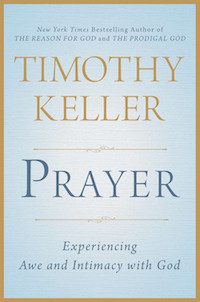 Prayer: Experiencing Awe and Intimacy with God by Tim Keller. Tim Keller has now written a long succession of powerful and bestselling books, but I believe this will go down as one of his best. He has no interest in startling new insights on prayer or novel new ways to pray. Instead he looks to the past, to the deep wells of Christian history, and draws heavily from Augustine, Luther, Calvin, Owen, and Edwards (and, in more recent history, Edmund Clowney). He grapples with the tension between prayer as a kind of communion with God and prayer as a means of seeking the coming of God’s kingdom, and he comes to satisfying conclusions. It is a book that will teach you why you ought to pray, while also teaching you how to pray. (Buy it at Amazon or Westminster Books | Read my review)
Prayer: Experiencing Awe and Intimacy with God by Tim Keller. Tim Keller has now written a long succession of powerful and bestselling books, but I believe this will go down as one of his best. He has no interest in startling new insights on prayer or novel new ways to pray. Instead he looks to the past, to the deep wells of Christian history, and draws heavily from Augustine, Luther, Calvin, Owen, and Edwards (and, in more recent history, Edmund Clowney). He grapples with the tension between prayer as a kind of communion with God and prayer as a means of seeking the coming of God’s kingdom, and he comes to satisfying conclusions. It is a book that will teach you why you ought to pray, while also teaching you how to pray. (Buy it at Amazon or Westminster Books | Read my review)
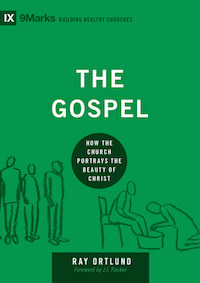 The Gospel: How the Church Portrays the Beauty of Christ by Ray Ortlund. What Ortlund sets out to show in this book is how the gospel is meant to shape both the life and the culture of the local church so that the local church serves as a display of Christ, as he is, according to the gospel. There are hundreds of books today that claim to be gospel-centered, but this one deserves to be near the top of your list. (Buy it at Amazon or Westminster Books | Read my review)
The Gospel: How the Church Portrays the Beauty of Christ by Ray Ortlund. What Ortlund sets out to show in this book is how the gospel is meant to shape both the life and the culture of the local church so that the local church serves as a display of Christ, as he is, according to the gospel. There are hundreds of books today that claim to be gospel-centered, but this one deserves to be near the top of your list. (Buy it at Amazon or Westminster Books | Read my review)
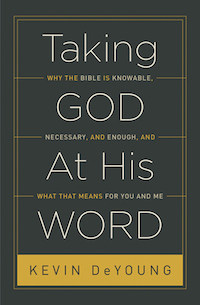 Taking God at His Word: Why the Bible Is Knowable, Necessary, and Enough, and What That Means for You and Me by Kevin DeYoung. Kevin DeYoung is quickly becoming one of my favorite authors, largely because of his ability to take difficult theological concepts and to make them reader-friendly. In Taking God at His Word he provides a basic introduction the Bible’s sufficiency, clarity, authority, and necessity–four key qualities of Scripture that are under attack today. It is a great introduction to the doctrine of the Bible for those who have never read one, and a great reminder to those for whom this is already familiar territory. (Buy it at Amazon or Westminster Books | Read my review)
Taking God at His Word: Why the Bible Is Knowable, Necessary, and Enough, and What That Means for You and Me by Kevin DeYoung. Kevin DeYoung is quickly becoming one of my favorite authors, largely because of his ability to take difficult theological concepts and to make them reader-friendly. In Taking God at His Word he provides a basic introduction the Bible’s sufficiency, clarity, authority, and necessity–four key qualities of Scripture that are under attack today. It is a great introduction to the doctrine of the Bible for those who have never read one, and a great reminder to those for whom this is already familiar territory. (Buy it at Amazon or Westminster Books | Read my review)
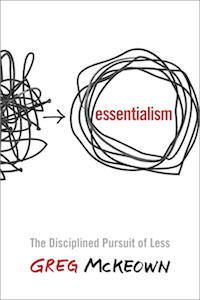 Essentialism: The Disciplined Pursuit of Less by Greg McKeown. This is not a Christian book, but it is one that impacted me as deeply as anything else I read this year. McKeown’s burden is to help people stop trying to do everything in life so they can focus instead on the few areas where they can make the deepest impact. He wants people to discipline themselves to do their best in a few areas rather than spreading themselves too thin. You’ll need to apply some Christian thinking to the book, but I also believe you’ll benefit tremendously from it. (Buy it at Amazon | Read my review)
Essentialism: The Disciplined Pursuit of Less by Greg McKeown. This is not a Christian book, but it is one that impacted me as deeply as anything else I read this year. McKeown’s burden is to help people stop trying to do everything in life so they can focus instead on the few areas where they can make the deepest impact. He wants people to discipline themselves to do their best in a few areas rather than spreading themselves too thin. You’ll need to apply some Christian thinking to the book, but I also believe you’ll benefit tremendously from it. (Buy it at Amazon | Read my review)
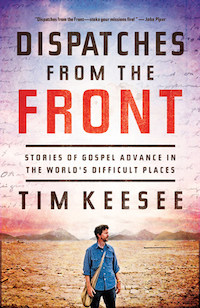 Dispatches From the Front: Stories of Gospel Advance in the World’s Difficult Places by Tim Keesee. For many years now Tim Keesee, founder of Frontline Missions International, has been going to places few of us will venture in order to see how the Lord is working there and in order to promote and support such work. He is dedicated to supporting gospel advance in the world’s most difficult places. In this book he shares glimpses of the church in those difficult places where, despite all the odds, God’s work continues. Read it to be both inspired and encouraged. (Buy it at Amazon or Westminster Books | Read my review)
Dispatches From the Front: Stories of Gospel Advance in the World’s Difficult Places by Tim Keesee. For many years now Tim Keesee, founder of Frontline Missions International, has been going to places few of us will venture in order to see how the Lord is working there and in order to promote and support such work. He is dedicated to supporting gospel advance in the world’s most difficult places. In this book he shares glimpses of the church in those difficult places where, despite all the odds, God’s work continues. Read it to be both inspired and encouraged. (Buy it at Amazon or Westminster Books | Read my review)










